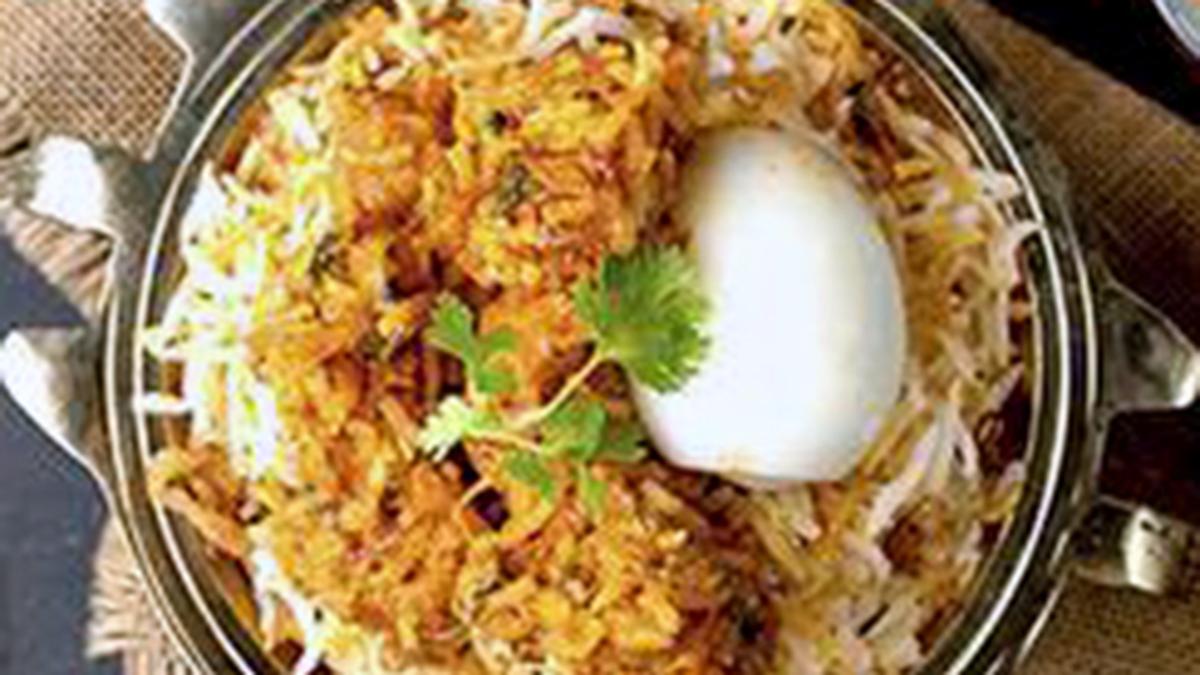
Biryani is a ₹10,000-crore market in Tamil Nadu
The Hindu
Discover the booming biryani market in Tamil Nadu, with top players, regional styles, pricing, and growing demand insights.
The biryani market in Tamil Nadu is a culinary powerhouse, with a staggering valuation at ₹10,000 crore. Those tracking the food business in Tamil Nadu explained that the organised market is pegged at ₹2,500 crore while the unorganised market stands at over ₹7,500 crore. Chennai is the largest market for biryani with 50% of business coming from this region.
Prominent players in the biryani industry in Tamil Nadu, include Dindigul Thalappakatti, Junior Kuppanna, Buhari, Anjappar, Salem RR Biryani, Ponnusamy, and SS Hyderabadi Biryani, among others. In addition to these well-known brands, there is a vast network of mid-sized establishments operating under various names. Furthermore, countless push-cart vendors serve biryani throughout the day and night, contributing to the widespread availability of this popular dish.
“The primary regions known for biryani in Tamil Nadu are the Kongu region — the Coimbatore belt, as well as the Ambur and Dindigul regions. Some of the famous styles are Chennai Muslim biryani (basmati rice), Kongu biriyani (Seeraga samba rice), Chettinad biryani, Ambur style biryani, Wallajah style biryani and Dindigul style biryani,” explained Balachandar R., executive director, Junior Kuppanna who has done an extensive research on the biryani market in Tamil Nadu. Junior Kuppanna sells around 1.2 million biryanis per year.
With 65 outlets across Tamil Nadu, the famous Dindigul Thalappakatti, one of the biggest players in this space sells around 5,000 to 6,000 kg of biryani per day. It’s Managing Director, Sathish D. Nagasamy, said that the numbers vary depending on festival days and weekends. Mr. Nagasamy pointed out that the unorganised market is growing year on year.
Abdul Rahim, founder of Mount Road Bilal, said: “I’m not a quantity player – I focus more on quality and we cook biryani every two hours and then serve. We don’t make it in the morning and keep it the whole day. We make around 300-400 kg of biryani each day,” he added.
Price points for biryani vary widely depending on the establishment and type of meat (chicken, mutton). At roadside shops, a chicken biryani can be priced as low as ₹100 per plate, with a quarter plate available for ₹60. Mutton biryani is typically priced higher due to the cost of the meat. Popular brands offer biryani in the range of ₹250 to ₹400 per plate. Some premium brands sell biryani at ₹600 per plate, while high-end hotels and restaurants charge over ₹1,600 per plate. Those tracking the food business say that despite the pricing, mutton is the clear favourite while chicken is considered a pocket-friendly option.
Taj Coromandel’s Gilli Biryani, crafted over two decades ago, remains a favourite choice among biryani enthusiasts in Chennai. “Gilli Biryani’s demand is very impressive and high, especially considering its signature status at Taj Coromandel’s Anise in Chennai. On a regular day, we sell approx. 60 to 70 portions, including mutton, chicken and vegetarian options,” said Ronald Menezes, Hotel Manager, Taj Coromandel.











